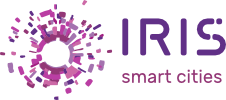
Since their inception in the 1990s, smart cities have only increased in popularity with the market expected to touch the $2 trillion mark by 2025. Smart city solutions are in part driven by factors such as increased urbanisation and climate change. While there is no doubt that ‘smartness’ fosters efficient cities, in his book Leading the inclusive city, Hambleton argues there is scant evidence to prove this very smartness is also building more inclusive cities. With inequality rising to unprecedented heights in recent decades, there is growing consensus among scholars and policy makers that a city can truly be classified as smart only when it uses data to improve the lives of “all” of its citizens including the elderly and those with disabilities. In other words, a smart city is an inclusive city.
It was against a similar backdrop that a master class on inclusive smart cities was held on Friday 20 April 2018 at the Vrije Universitet Brussels (VUB) – an IRIS Smart Cities partner institution. The central theme of the master class was to explore how smart city solutions can also benefit citizens who may be socially, digitally, cognitively, or physically challenged. The event featured a line-up of inspiring speakers who each described different means of digital inclusion.
The first speaker was James Thurston, Vice-President at G3ict – a worldwide initiative for inclusive information communication technologies (ICTs). As a global expert on digital inclusion, James asserted that, in the 21st century, access to technology is a human rights issue, the lack of which precludes people from fully participating in society. He reiterated that this point was particularly relevant to those with disabilities, an already vulnerable group with very limited access to resources. Although smart cities are on the rise, James cautioned that they are inadvertently widening the digital divide by failing to incorporate ICT accessibility in the form of assistive technology, for example. In order to combat this worrying trend, G3ict has developed a ‘Smart Cities for All Toolkit’ to help smart cities build in ICT accessibility by design.
Willemien Laenens, a researcher at VUB, presented a relatively new research project PAR4-B, developing an e-inclusive smart city master plan for the Brussels Capital Region. She also cautioned against digitisation that does not consider those without the means or skills to use technology, thereby deepening social inequalities. This type of exclusion in turn amplifies a “Matthew effect” for the digital age, where the adage – ‘the rich get rich and poor get poorer’ – creates digitally vulnerable citizens who face significant participation barriers. In devising an e-inclusive smart city master plan, the researchers hope to work with multiple stakeholders to identify current digital challenges for the Brussels region, formulate solutions and actions as well as develop a future vision for Brussels’ digital future.
Project PAR4-B was followed by an introduction to BECode – coding school and brainchild of social entrepreneur Karen Boers. Karen’s passion for education shone through as she spoke about the school’s mission “to grow talented, underprivileged youth into fearless developers”. Youth unemployment in Belgium is at 23%, which extends a heavy toll on both the country’s economy and society in general. Karen maintained that no one is born wanting to harm others, and that it is the system which pushes young adults towards the extreme. To make matters worse, there is often a mismatch between the education system and needs of disadvantaged youth. In an attempt to remedy the situation and address the shortage of e-workers, Becode proposes an intensive 7-month program using an applied learning methodology. Young graduates are not only taught coding but also problem-solving skills that can equip them to launch their own start-up or become developers for the private sector. The program, which enjoys an 80% employment success rate, is entirely free and potential candidates are selected based on motivation and logic.
The smart movement has so far been largely city-centric, accordingly widening the urban-rural digital divide. The fourth speaker, Pierre-Bernard Van Ecker, presented a project related to ‘smartening’ the Flemish countryside of Hageland. The project entitled Happy Hageland aims to display commercial, touristic, and administrative services and activities in the Hageland region using a shared mobile digital platform. Given increased mobile and smartphone use in the region, the platform uses geo-location and web-crawling to make local happenings available via the Happy Hageland App. The project is being carried out with the help of 20 municipalities together with University Colleges Leuven-Limburg (UCLL), the Flemish e-governance organisation in Brabant (Vera), and several non-governmental organisations.
The fifth and final presentation on ‘De Andere Markt’, loosely translated to ‘the other market’, was made by Katrien Dreessen from the LUCA School of Arts in Genk, Belgium. In keeping with the master class’ theme, Katrien emphasised that envisioning the future of smart cities necessitates the involvement of multiple actors. She explained how 2014 saw the closure of a car manufacturing plant in the city, which left 4000 people without jobs. De Andere Markt was founded around the same time to collaboratively design the future of work in the region. The project drew on a participatory design approach to identify the skills in the community through interventions such as skill posters and cargo bikes. These capacities were then shared in the public realm and online so as to match them with potential employers and related organisations. In so doing, de Andere Markt became an incubator for local initiatives as well as a place for dialogue and community building, ensuring that all residents would have a say in determining the future of work, and consequently the future of their city.
For more information on master classes related to smart cities, please visit https://www.smartcitychair.be/master-classes-2018
The event was organized by the VUB Smart Cities Chair and hosted by SMIT-VUB
Article by Namita Kambli
23 May 2018

